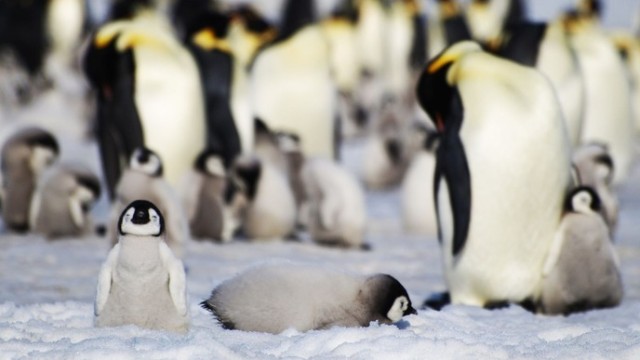Scientists worry that the frozen continent, which affects sea levels and weather patterns worldwide, is finally being affected by climate change. Winter sea ice reached a new low point last year, and in 2022 it experienced the world's most intense hot.
Following the discovery of their dark brown excrement on the stark white background of ice and snow, four new colonies of emperor penguins have been observed from space.
With climate change threatening to melt their environment, British scientists are keen to map penguin colonies in the remote and hostile area.
Sea ice, or frozen ocean water floating atop the sea, is essential to penguin reproduction and youngling care.
However, the sea ice cover is decreasing, and a different research conducted in the previous year warned of "catastrophic breeding failure" in four colonies due to the melting of the winter sea ice before the chicks could fly.
According to a study that was just published in Antarctic Science, scientists have found three additional colonies in addition to the colony in Halley Bay that was previously believed to have disappeared but has since returned.
Winter sea ice reached a new low point last year, and in 2022 it experienced the world's most intense hot.
In the past, emperor penguins have reacted to diminishing sea ice by relocating to areas with greater stability the next year.
However, BAS cautioned that this approach won't work if sea ice is compromised throughout an area.































Comment: